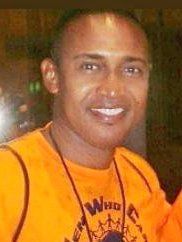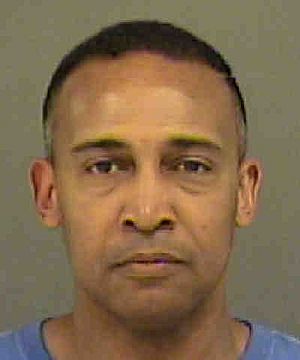Patrick Cannon facts for kids
Quick facts for kids
Patrick Cannon
|
|
|---|---|
 |
|
| 56th Mayor of Charlotte | |
| In office December 2, 2013 – March 26, 2014 |
|
| Preceded by | Patsy Kinsey |
| Succeeded by | Dan Clodfelter Michael Barnes (acting) |
| Mayor Pro Tempore of the Charlotte City Council | |
| In office June 14, 2010 – December 2, 2013 |
|
| Preceded by | Susan Burgess |
| Succeeded by | Michael Barnes |
| In office December 3, 2001 – December 5, 2005 |
|
| Preceded by | Susan Burgess |
| Succeeded by | Susan Burgess |
| Member of the Charlotte City Council | |
| In office December 3, 2001 – December 2, 2013 |
|
| Preceded by | Susan Burgess/Lynn Wheeler/Joe White |
| Succeeded by | Michael Barnes/Vi Lyles |
| Constituency | at-large |
| In office November 29, 1993 – December 3, 2001 |
|
| Preceded by | Ella B. Scarborough |
| Succeeded by | Harold Cogdell |
| Constituency | 3rd district |
| Personal details | |
| Born | November 27, 1966 |
| Political party | Democratic |
| Spouse | Trenna Cannon |
| Children | 2 |
| Residence | South Charlotte, North Carolina |
| Alma mater | North Carolina Agricultural and Technical State University |
| High School | South Mecklenburg High School |
Patrick DeAngelo Cannon was born on November 27, 1966. He is an American politician and a member of the Democratic Party. He served on the City Council of Charlotte, North Carolina from 1994 to 2013. In November 2013, he was elected as the city's 56th Mayor. He resigned as mayor in March 2014.
Contents
Education and Learning
Patrick Cannon went to North Carolina A&T State University in Greensboro, North Carolina. He earned a degree in communications, focusing on business marketing. He also received a special certificate from the University of North Carolina at Chapel Hill School of Government. This certificate helped him learn more about how local governments work.
Serving on the City Council
Becoming a Council Member
On November 2, 1993, Patrick Cannon was elected to the Charlotte City Council. He represented the third district, which is on the west side of the city. He was a candidate for the Democratic Party. When he took office on November 29, he was only 26 years old. This made him the youngest council member in Charlotte's history at that time.
Years as a District and At-Large Member
Cannon was re-elected to his district seat three more times: in 1995, 1997, and 1999. In 2001, he decided to run for an "at-large" councilor position instead. An at-large councilor represents the entire city, not just one district. He won this election.
After winning, other council members chose him to be the "mayor pro tempore." This role means he would act as mayor if the actual mayor was not available. He served in this role from 2001 to 2005.
Later Council Terms
Cannon ran for mayor in 2005 but later decided not to continue his campaign. Instead, he successfully ran for re-election as an at-large councilor. He was re-elected again in 2007 and 2009.
On June 14, 2010, the council again chose Cannon to be mayor pro tempore. He was re-elected to the council and re-appointed as mayor pro tempore in late 2011.
Time as Mayor
Becoming Charlotte's Mayor
Patrick Cannon decided to run for mayor in the 2013 mayoral election. The previous mayor, Anthony Foxx, chose not to run again. On November 5, 2013, Cannon was elected as the mayor of Charlotte. He received about 53 percent of the votes. He officially became mayor on December 2, 2013. At the time he became mayor, he was still a member of the City Council and the mayor pro tempore.
Resignation from Office
Patrick Cannon resigned as mayor of Charlotte on March 26, 2014. This happened after an investigation by the Federal Bureau of Investigation (FBI). He had been mayor for less than four months.
After his resignation, Cannon made a public statement. He said he was sorry for his actions and for breaking the public's trust. He expressed his love for Charlotte and hoped to still make a positive impact on the city.
Later Life and Attempted Return to Politics
After his time as mayor, Patrick Cannon was released from prison on September 15, 2016. He had served 22 months of his sentence. He officially completed his supervised release on January 25, 2017.
In March 2022, Cannon announced he wanted to return to politics. He filed to run for an at-large Charlotte City Council seat again. He stated he wanted "a new beginning" and a chance to make a positive difference. However, in the Charlotte Democratic primary elections held on May 17, 2022, Cannon finished last. He received only 12 percent of the votes for the at-large City Council seat.
Images for kids
 | Kyle Baker |
 | Joseph Yoakum |
 | Laura Wheeler Waring |
 | Henry Ossawa Tanner |



